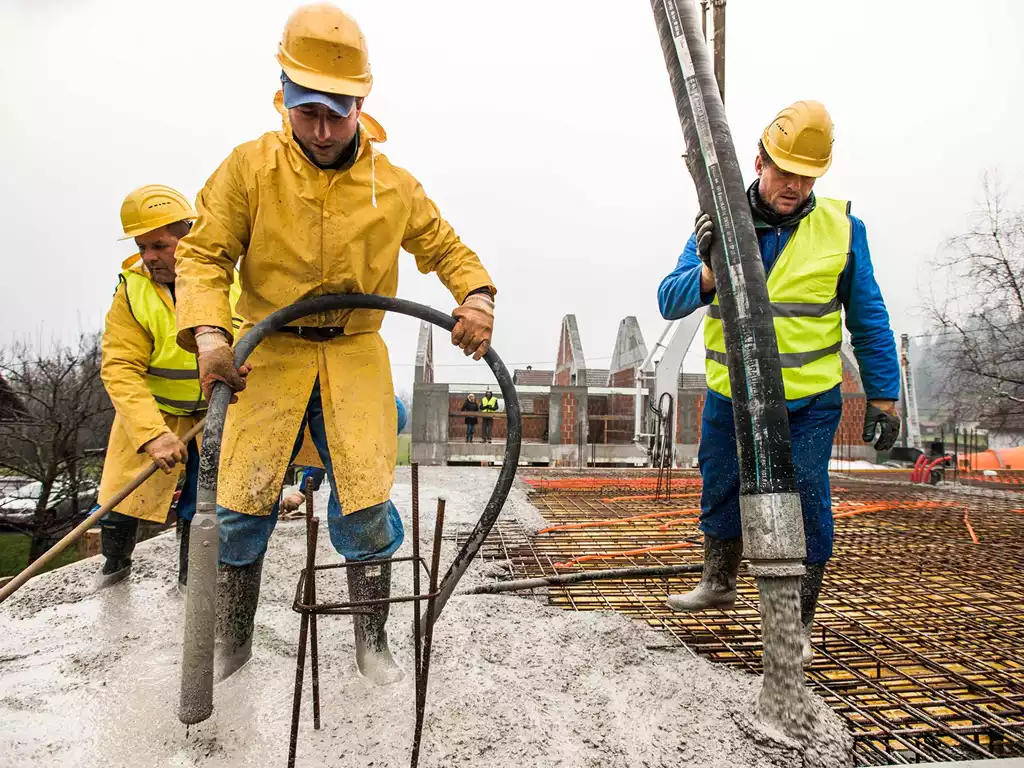Are you interested in working in the construction industry but don’t know where to start?
Construction jobs can be rewarding, both financially and personally. From building homes and commercial structures to roads and bridges. There are many different types of construction jobs available.
But with so many options, it can be overwhelming to figure out how to get started. This guide will walk you through the steps to take on how to get a construction job.
Page Contents
1. Determine Your Career Path

The first step in getting a construction job and launching your career in construction is to determine your career path. The construction industry offers a wide variety of roles and positions. So, it’s important to think about what type of work you’re interested in and what skills you have.
Are you more interested in hands-on work, such as carpentry or plumbing? Or are you better suited for a management position? Just like project management or construction supervision.
Once you have a clear idea of what type of work you want to do, it’s important to research the qualifications and requirements for that position. This will help guide your education and training decisions.
2. Gain Relevant Education and Training
Many entry-level construction jobs need a high school diploma or equivalent. But, as you progress in your career, further education and training may be necessary.
Attend trade schools or community colleges. This can provide you with the skills and knowledge needed for specific roles in construction. There are also apprenticeship programs available. They can offer on-the-job training while earning a wage.
Additionally, get certifications related to specific skills or safety training. This can make you a more competitive candidate for construction jobs.
Ongoing education and training can lead to career advancement. Research the requirements for your desired job and keep learning to stay competitive in the industry.
3. Build a Strong Portfolio
Creating a standout portfolio is crucial for aspiring professionals in construction design, architecture, and project management. This portfolio, a dynamic showcase of your skills, experiences, and creativity, is your ticket to becoming a standout candidate for construction jobs and capturing a potential employer’s attention. It should feature detailed project descriptions, sharp photographs, precise architectural drawings, and relevant documents. Clarity and professionalism in your portfolio’s organization are key, highlighting your proficiency in conveying complex ideas. Such a well-structured portfolio not only displays your expertise but also narrates your professional growth, setting you apart in these competitive fields. In essence, a meticulously prepared portfolio is your gateway to exciting opportunities in the construction industry, making a memorable impression on future employers.
4. Network and Gain Experience

Networking is a crucial step in finding job opportunities in the construction industry. Attend career fairs and join professional organizations.
Also, reach out to friends and family who may have connections in the field. This can help you learn about potential job openings and get your foot in the door.
Gaining experience is also important, especially if you’re just starting in the industry. Look for internships or entry-level positions that can help you build your skills and knowledge.
You can even volunteer on construction projects or build homes for charities. These can all provide valuable experience. This can also help you make connections within the industry and potentially lead to job opportunities.
5. Prepare for Interviews
Once you have landed an interview for a construction job, it’s important to prepare beforehand. This can help boost your confidence and showcase your qualifications. It can also increase your chances of getting hired.
Research the company and familiarize yourself with its projects and values. Be prepared to talk about your relevant skills and experience, as well as any training or certifications you have obtained.
You should also dress professionally and be on time for the interview. Show that you are enthusiastic about the job and ask questions to learn more about the company and the position.
6. Apply for Jobs

Once you know your career path, have the right education and training, and have networked for experience, it’s time to apply for jobs. Make sure your resume highlights your skills and qualifications for the specific job you are applying for. Include any relevant certifications or training programs that you have completed.
When submitting applications or going in for interviews, be professional and dress appropriately. Construction jobs need physical labor and may have a more casual work environment. But, it’s still important to make a good first impression.
Show your enthusiasm for the job. Also, be prepared to discuss how your skills and experience make you a strong candidate.
7. Consider Temporary or Entry-Level Positions
It may be your ultimate goal to land a permanent construction job. But, it’s important to also consider temporary or entry-level positions. These types of roles can provide valuable experience and help you build your skills and network within the industry. They can also lead to potential full-time opportunities in the future.
Temporary positions can also offer flexibility in terms of location and project type. This allows you to gain a diverse range of experience.
Additionally, entry-level positions may offer on-the-job training. They can give you the opportunity to learn from more experienced professionals.
8. Never Stop Learning and Growing

The construction industry is constantly evolving with new technologies, materials, and techniques. To stay competitive in the job market, it’s vital to keep learning. You need to stay informed about these industry changes.
You can do this by attending workshops and conferences. You can also keep an eye on trade publications or take online courses.
Additionally, as you gain experience and advance in your career, consider obtaining extra certifications. You can also pursue higher education degrees. This can open up new opportunities and help you stand out as a highly qualified candidate.
9. Be Flexible and Willing to Relocate
The construction industry can be highly competitive. Sometimes, job opportunities may not be readily available in your desired location. Being flexible and willing to move can increase your chances of finding a construction job. It also lets you learn new things in different areas or even countries, which is good for your skills.
But, remember to think about how much moving will cost. Look at how much it costs to live in the new place and talk about getting paid more to cover those extra expenses.
10. Learn How to Get a Construction Job Today
Embarking on a career in the construction industry can be a rewarding and fulfilling journey. Whether you’re experienced or just starting, this article will guide you on how to get a construction job. Every step is a building block towards a successful construction career.
With a strong foundation, hard work, and a drive to grow, you can build a bright future in this dynamic industry. Best of luck in your journey to secure a construction job and leave your mark in this thriving field!
For more helpful, interesting, and fascinating reading, keep exploring our blog for more!





